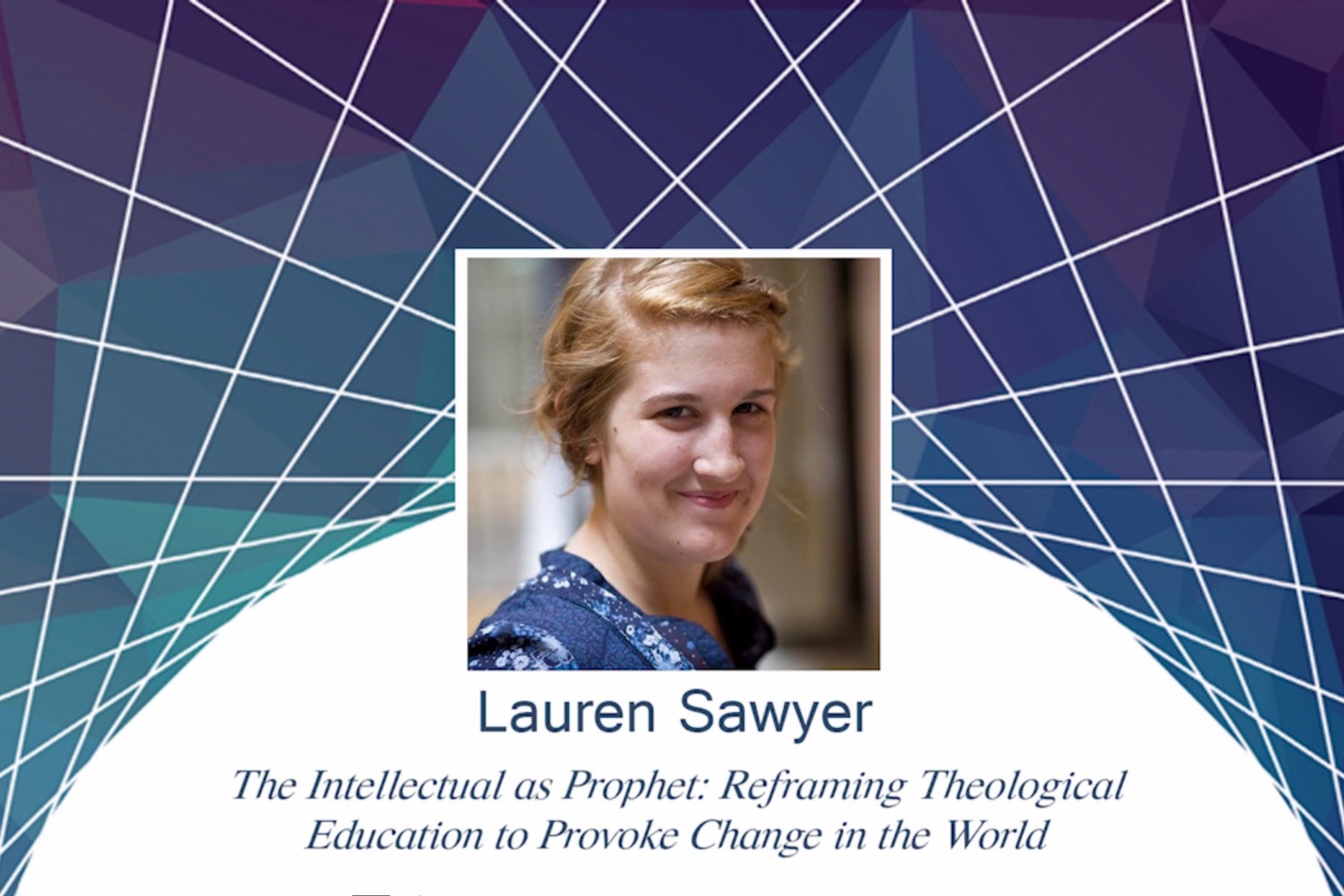Last October, we hosted the first annual Symposia: An Intersection of Conversation & Innovation, a forum in which alumni of The Seattle School presented the ongoing work they are pursuing at the intersection of text, soul, and culture. Integrative education does not end at graduation, and our alumni are proof of that. Symposia highlighted the ways that Seattle School alumni are continuing to wrestle with big questions and big dreams in theology, psychology, and culture.
This week, we’re featuring a presentation by Lauren Sawyer (MATC, ‘14), “The Intellectual as Prophet: Reframing Theological Education to Provoke Change in the World.”
Lauren opens with a story of her first time participating in an academic conference, when she was struck by the insider language and the isolation and distance of the ivory tower. “I felt so much dissonance after leaving the conference, because I was not trained to be this kind of professional,” she says. “I was trained to embody my knowledge, to be in a kind of relationship with it.”
Pulling from her experience in The Seattle School’s MA in Theology & Culture program, Lauren shares her desire to work as an intellectual who is an embodied being rather than a faceless professional. She pulls from Edward Said’s formulations of the intellectual and Esther Meek’s idea of “covenantal epistemology,” presenting the image of an intellectual who is motivated by love and whose theory and praxis are intimately connected.
Lauren’s formulation of the intellectual is deeply informed by her study at The Seattle School, where “I was taught that who I am in my particularity matters, and it affects how I do theology.” She argues that the intellectual is marked by interdisciplinarity, seeking to raise difficult questions and confront orthodoxy and dogma. Ultimately, she says, the work of the intellectual is the work of the prophet, which is “to incite, arouse, provoke, and intensify the desire for what could be. Another way of saying this: the work of the prophet is in the realm of hope.”
“Why does the intellectual and her work matter? Her work matters because her message is always on behalf of the weak and vulnerable. […] The underrepresented, the marginalized—they are not faceless masses, but embodied persons. This was the kind of work I was trained at The Seattle School to do as an MATC. It’s the kind of work my colleagues and I desire to do.”

